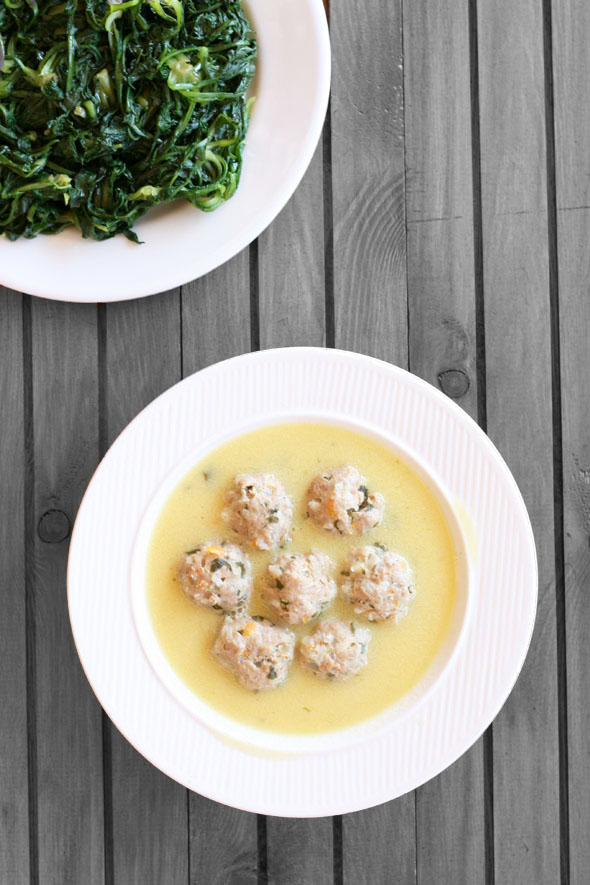Youvarlảkia – Rice Meatballs (soup or not soup)
Youvarlákia are meatballs made with ground beef, rice, and herbs. They are cooked in stock and then thickened with avgolẻmono sauce. Avgolẻmono is the most characteristic Greek sauce and consists of whole beaten eggs with the addition of lemon juice. This is added carefully to the meatballs just before serving to give taste and a velvety texture to the final dish.
When you have no time to cook two dishes for a meal, Youvarlảkia can be the best choice. It can be served either as a hearty soup in winter or as a main dish anytime, - especially in summer when the weather is hot and soup is not a good choice. We then cook youvarlákia with half the amount of stock in order to end up with a thick sauce. This version of the dish is usually served with fried potatoes.
The meatballs
Serves 4
500gr ground beef
¼ cup rice
3 Tsps olive oil
1 carrot grated
1 onion chopped
2 Tsps. Chopped parsley or dill (or both)
Salt and pepper to taste
¼ cup olive oil
½ litre chicken or beef stock
In a bowl mix the ground beef, rice, 2 Tsps. olive oil, carrot, onion and parsley. Knead the mixture well for a minute; then cover with plastic wrap and keep in the fridge for 30 min.
Form bite-size meat balls with your hands and dredge in flour.
Pour the stock in a pot over medium heat, add the olive oil and bring to a boil.
Add the meatballs carefully to the boiling stock (the boiling stock will keep the meatballs firm) and cook for about 20-30 min.
For the avgolẻmono sauce:
1 whole egg
juice from a lemon
In a heat proof bowl, beat the whole egg gradually adding the lemon juice until it has completely incorporated. Gradually add a few tablespoons of hot stock from the pot to the egg mixture, stirring rapidly as you add it. This prevents curdling. Once that is done you can add it to the hot meatballs and stock. Return to boil for 30 seconds. Serve hot.






Comments
Post a Comment